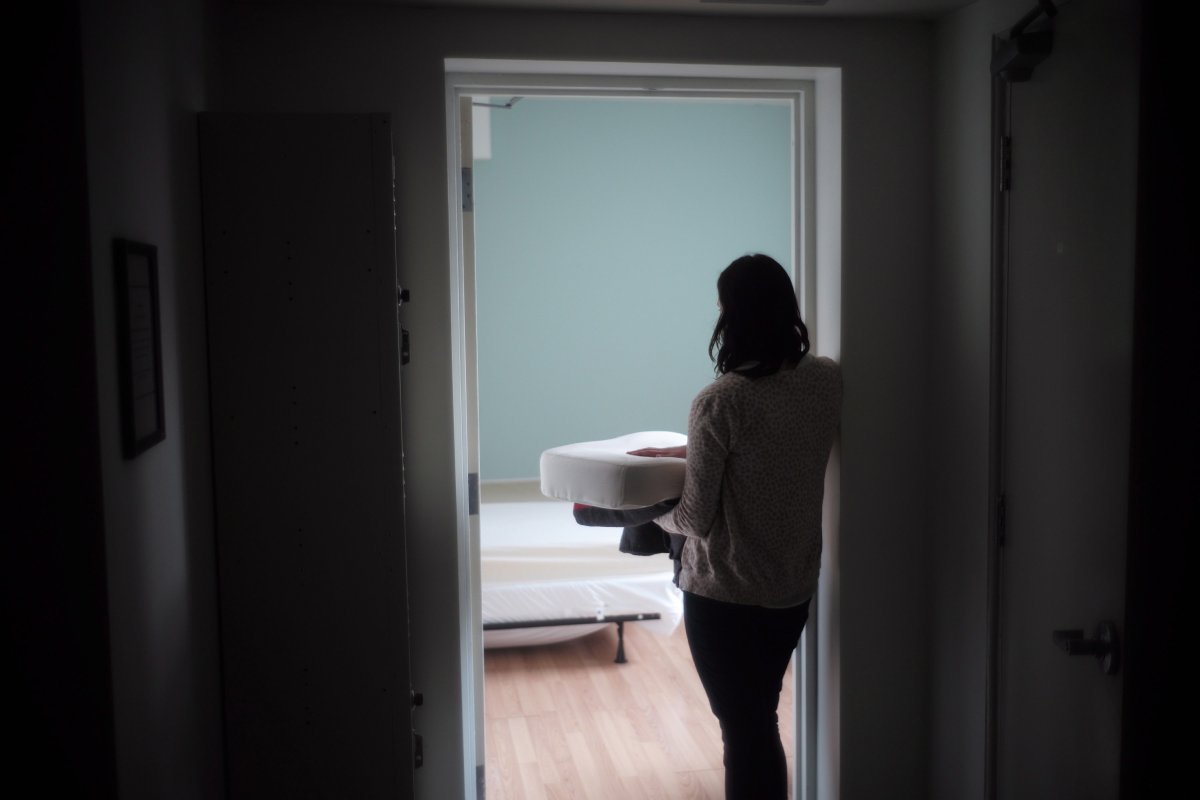Women’s shelters offering crisis support in Manitoba are encouraging people to access their services as the economy reopens slowly and people begin to emerge from the coronavirus pandemic shut-down.

“As far as participants that come to us, they need a connection and they need a place to be,” says Cynthia Drebot, executive director of North End Women’s Shelter.
“We provide opportunities for people to come together, gather … so our hope is that while people start to feel comfortable coming into places, people will start to reach out for crisis support that they need, that maybe they didn’t do in the last weeks.”
Drebot adds that while most programs are back in some form or another, they, like most other businesses, have to account for the extra time spent sanitizing everything, sourcing more health products, and introducing extra space for social distancing — even moving some groups outside.
“I think people have realized how much they really appreciated connection that they had in the past,” Drebot says.
“So that, I think, is what’s happening now. People are gathering and enjoying being together, yes, sitting farther apart, yes, washing hands more often, but that idea of coming together and appreciating in a bit of a different way, we’re definitely seeing and hearing that.”
Deena Brock, program coordinator with the Manitoba Association of Women’s Shelters, agrees there has been an uptick in people accessing services, but it has only become measurable in the last few weeks and still falls far short of pre-COVID-19 levels.
“I think it has been a real struggle for a lot of women, and unfortunately, I think there’s a lot of hidden domestic violence or family violence that is just not coming out yet,” Brock says.

Part of the reason rural shelters are disproportionately seeing fewer clients, Brock suspects, is due to a lack of available transportation, and even if there is bus service, there may be a hesitation to get inside a vehicle potentially filled with other people.
“I think as more services and businesses open up, it gives women opportunity to get away,” Brock says.
- Invasive strep: ‘Don’t wait’ to seek care, N.S. woman warns on long road to recovery
- Canadian man dies during Texas Ironman event. His widow wants answers as to why
- ‘Super lice’ are becoming more resistant to chemical shampoos. What to use instead
- Solar eclipse eye damage: More than 160 cases reported in Ontario, Quebec
“If they are stuck in a house … when you can’t go grocery shopping or go to the laundromat or something like that, there’s no way you can get away from that abuser.”
Brock says the onset of the pandemic was particularly challenging since shelters operate 24/7 and needed to adapt to changing public health orders in real-time.
“One thing about women’s shelters over the years, they’ve always learned how to adapt quickly and how to make things work … and they did a great job of doing that.”
Although the challenges mounted as COVID-19 took a foothold in the province, Brock says shelters are safe, and people shouldn’t hesitate to seek help, beginning with a phone call to the provincial crisis line.
“The family violence specialist who answers that call can provide counselling, referrals or support, or they can do an intake if that’s what the client needs,” Brock says, adding most shelters do everything they can to offer “low-barrier” service.
The provincial crisis helpline is 1-877-977-007. There are also two text-only lines: 204-792-5302 and 204-805-6682.








Comments